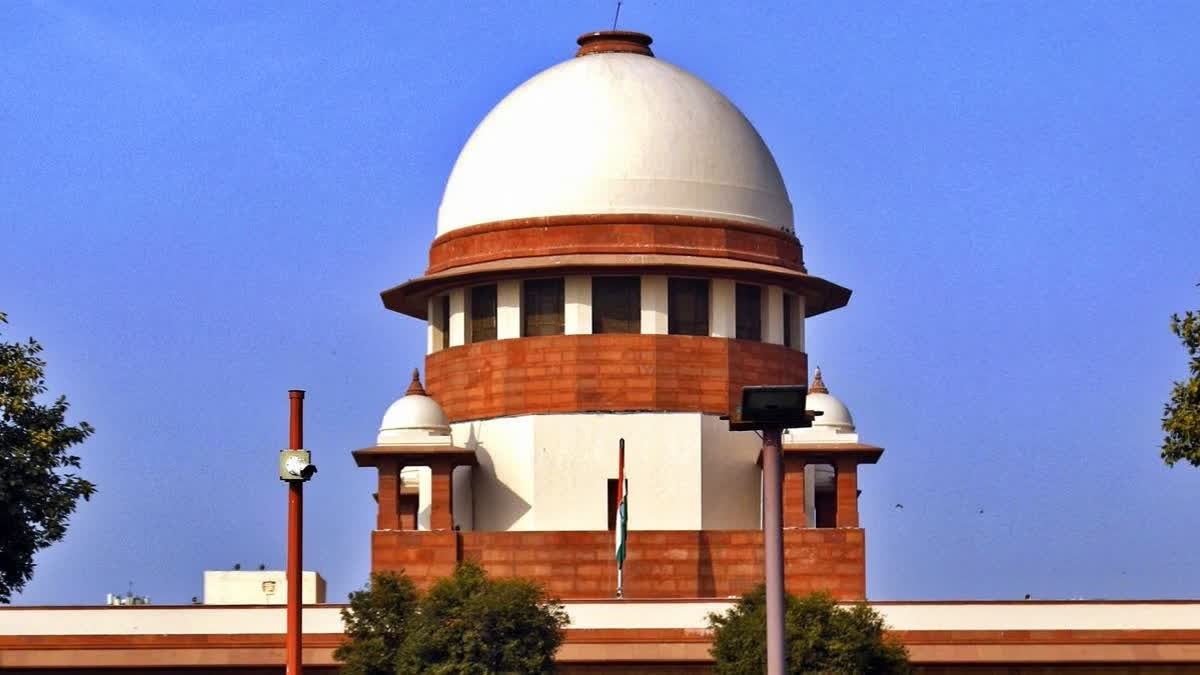New Delhi: The Supreme Court on Friday said it would be “very difficult” to strike down a part of the women’s reservation law, which says it will come into effect after the census and also refused to issue notice on the plea filed by Congress leader Jaya Thakur. A bench of justices Sanjiv Khanna and SVN Bhatti said, “This is a step taken, which is a very good step,” while declining to accept the argument of senior advocate Vikas Singh, who was representing the Congress leader.
The bench said there is a petition pending before the apex court on the issue and it will take up Thakur’s plea, along with that on November 22. Singh asked for a notice to be issued and that the plea be listed with the other matter. The apex court declined to issue notice on the plea.
Singh argued that it is understandable that a census is required for data collection for the grant of reservation to backward classes and questioned how the question of a census arises in the case of women’s reservation law. Singh stressed that part of the law that says it will be implemented after the census is arbitrary and the court must strike it down. “It will be very difficult for the court to do that”, said the bench.
Also read: SC dismisses Masjid Committee's plea challenging Allahabad HC on transfer of Gyanvapi case
The bench told Singh that it has understood his argument that census is not required (for women’s reservation). “But there are a whole lot of issues. Seats will have to be first reserved and other things…,” it said, adding that it is not dismissing the plea and only tagging it with the pending matter. Thakur moved the Supreme Court seeking immediate implementation of the women reservation bill, passed by both Houses of Parliament, before the 2024 general elections.
The Women's Reservation Bill received the nod of President Droupadi Murmu in September, days after its historic passage in both Houses of Parliament, and with her assent, the legislation has been turned into a law. Officially known as 'Nari Shakti Vandan Adhiniyam', the law proposes to reserve one-third of the seats in the Lok Sabha and all state Assemblies for women.
Thakur’s plea contended that in the democratic process all corners of the society's representation is required but from the last 75 years there is no adequate representation of required women in Parliament as well as in the state legislature. “This is the long pending demand from the decades and Parliament rightly passed the above act for 33% reservation but putting the clog that the said act will be implemented after the delimitation is undertaken for these purposes after the relevant figures for the first census which may kindly be declared as Void-ab-initio, for immediate implementation of the 33% women reservation”, said the plea.
The plea contended that the constitutional amendment must not be withheld for an uncertain period. The plea argued that in the present amendment there is no requirement to the census as well as delimitation because number of seats are already declared and the amendment gave 33% reservation for existing seats. “Putting the clog is defeating all aims and object of women representation in the democratic process”, said the plea.



